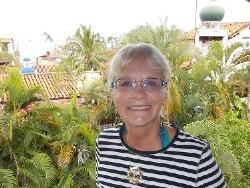
The World Federation of Science Journalists (WFSJ) is pleased to announce the Louise Behan Reporting Grants to support science journalism.
Grants objective
The Louise Behan Reporting Grants is to support science journalists in lower-income countries [as defined by the World Bank] [2] report on stories of importance to that country or region.
Because of its experience in the training of journalists and to maximize their impact, WFSJ will make sure that the grants are used in synergy with its regular activities, such as its training programs and the World Conference of Science Journalists (WCSJ).
Grant history
Louise Behan graduated from Ottawa’s Carleton University School of Journalism in 1978. She worked for Canada’s International Development Research Centre (IDRC) for 13 years. Her employer also has a long history of supporting science journalism in the developing world and has been a key donor to the WFSJ, such as for its SjCOOP flagship project and the 4th World Conference of Science Journalists in Montreal.
The Grant
With the goal of maximizing the number of recipients and make the best use of the available funds. WFSJ has often seen how a relatively small amount between 300$ and 800$ CAN a year, i.e. travel funds to a specific region of one’s own country, can help produce award-winning reporting.
For practical reasons, the grants might be divided into two payments, depending on the scope and nature of the reporting project, with an amount made available upon acceptance of the project with the remainder attributed after the publication of the reporting piece.
Eligibility
Reporting grants will exclusively be awarded to the journalists that have already been selected to participate in a WFSJ activity or as a recipient of a scholarship to attend a forthcoming World Conference of Science Journalists (WCSJ). The Louise Behan Reporting Grants will, therefore help journalists already involved in a WFSJ training activity to produce more stories meeting the criteria of good science journalism, by putting into practice training’s learning.
The WFSJ regularly implements training workshops and activities. Participants in these activities will be invited to apply for this grant. The Federation will prioritize reporting projects that promise the most synergy with the training programs.
Eligible reporting projects must meet basic criteria of science journalism. They must include a scientific perspective on an issue and include interviews of researchers or scientists.
How to apply
If invited to apply, an online form will be made available to selected candidates.
Upon story completion, the winners agree to see their work posted on the World Federation of Science Journalists’ website and/or highlighted at the World Conference of Science Journalists.
The winners also agree to respond to questions on the impact and benefits the Louise Behan Reporting Grant has on their profession as a science journalist. The outcome will be posted as an article on the WFSJ blog that includes a photograph of the winner and will be shared across the WFSJ’s social media channels.
Grant partners
The grants are organized in partnership with the International Development Research Centre (IDRC) and managed by the WFSJ thanks to a generous donation from Louise Behan in support of science journalism.
[1] The grants are eligible to journalists from lower-income countries in three categories and as listed by the World Bank: low-income economies, lower-middle-income economies, and higher-middle-income economies. [World Bank database consulted August 2018]
[2] Ibid